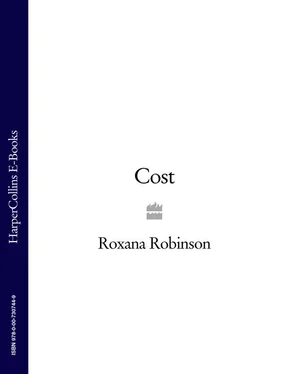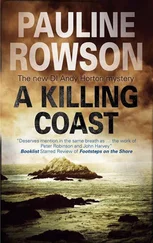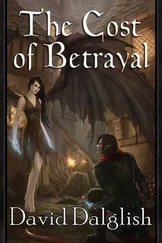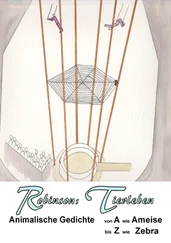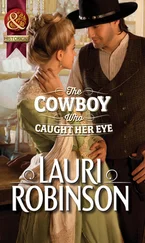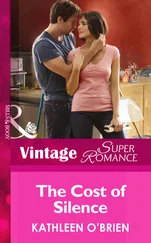Julia turned away from them both, from their collusion, her father's irritating manner. “I thought we'd eat out on the porch.”
They sat in a row in the bright shade. The air was hot and dry, with a whiff of cinnamon from the ferns. Before them the long pink grass rippled down to the cove.
Katharine sighed. “This is awfully nice. You have such a lovely place.”
“It's a pretty nice view,” Julia said.
“But the house,” Katharine insisted, “the house is lovely.”
“Falling to bits,” Julia said cheerfully.
“But in such a charming way,” Katharine said, smiling.
“I wish I'd found that leak in the bathroom,” Edward mused. “I'd have fixed it for you.”
Julia said nothing. Having her parents here roused something in her. She felt she was holding something at bay. She was patrolling the border. She was never not patrolling the border. It was a peacekeeping mission, she would not provoke an incident, but she would patrol, with armed guards. She picked up her sandwich and squinted into the bright light. For the meadow, for that smoky pink grass, first an undercoat of dead green, for depth. Or maybe yellow, deep yellow, for vitality.
The sky was brilliantly clear and blue, but the sun had moved around behind the house, and the shadows—still short and black— were beginning to lean toward sunset.
Edward followed his wife as she made her way to the back door and carefully onto the porch. As Edward stepped down, he felt the floorboards yield springily beneath him.
Rotten , Edward thought, pleased. He liked discovering flaws, it made him feel successful. Through some arcane law of psychophysics, every flaw that Edward discovered elsewhere increased his own sense of well-being.
He knew what should be done to this, the rotten boards ripped out, the punky orange shards piled on the lawn. New dry wood, the snapping of the chalked string against it, the blurred shadow flawlessly straight. The boxy, blunt-tipped pencil, the dull iron shine of the nails. Everything set in place.
Edward once would have done it himself, though now it was beyond him. Still, he'd have liked to watch it. He enjoyed watching construction—carpentry, wiring, plumbing—anything with mechanical complexity. He liked this larger, inanimate counterpart to his own world of cutting and clamping and reconnecting. He liked knowing how systems worked, all of them; he used to read instruction books on wiring and plumbing. He'd once done those things. He liked having the tools laid out on his bench, clean and ready. He liked making things function properly, correcting flaws. And there was a dark, subversive thrill about using hammers, awls, saws. Power tools: the spinning disk of silver teeth turned smooth by speed. The high whine of danger as his hands approached it, feeding the wood steadily into the lethal cut. Putting at risk his own irreplaceable tools, his hands.
He'd always been proud of his hands. They were small, with strong, supple fingers; he'd kept them clean and well-tended, the nails short, the skin pink. The harsh surgical scrub soap was abrasive, you used lotion to keep the skin from drying and cracking. They all did. At first it seemed girlish and sissy, but later it seemed normal.
All that was over. Edward could risk his hands however he liked, though he could now only do minor handiwork, nothing difficult. He had become clumsy, his agile hands were paws, the fingers thickened, joints stiff. One hand would not entirely open, because of Dupuytren's contracture, a spontaneous scarring of the fascia. The other hand opened and closed, but with difficulty: Edward was being slowly hobbled by his own body.
Worse than clumsiness, though, was the ebbing of his energy. Things he'd once have done in a moment, before breakfast, without thinking, now took him all morning. Everything was slow and hard to manage, even talking. There were moments when he could not produce a simple, common word, one he'd known his whole life. It frustrated him. He'd always been in control of things; his limbs, his mind, his life. How had he been so quietly, so irrevocably, deposed from power? He was helpless before this. All he could do was keep his secret from the world.
Part of the pleasure Edward took in discovering flaws had always lain in his ability to correct them. He'd have liked to fix the leak beneath the sink, the rotting floor. He'd have liked to fix all these things, he liked to make contributions, but offering anything to Julia was risky. He hadn't dared suggest help when Wendell left her. She'd always been touchy, and whenever he made suggestions she turned antagonistic. She was like that, his older daughter, challenging, argumentative. Something in her was abrasive. There was a gritty vein that would not rub smooth, that ran all the way through her.
Her younger sister, Harriet, was easier in that way; Harriet didn't argue. She didn't get angry with him; she said what she meant. But she was cold, somehow. Both his daughters were difficult. For some reason, he'd gotten stiff-necked, cantankerous ones. It was too bad; he'd have liked soft, winsome daughters, that kissed and petted him.
Julia helped Katharine into a chair, and Edward lowered himself beside her. The springy metal chair sank disconcertingly.
“Oh,” said Katharine, as the chair dropped beneath her. “What a nice surprise!” She bounced gently. “I think this is lovely.” She crossed her wrists primly in her lap. “How do you do , Mrs. Astor?” She nodded to them as though she were at a tea party, rising and falling decorously.
Julia laughed. They had the same sense of humor; Edward did not. He gave a bemused smile and looked into the distance. He didn't share Katharine's penchant for the absurd. He tolerated it, but did not approve.
Katharine looked out over the meadow, still smiling.
She took pleasure in the world, it was her great gift, though Edward would admit this only to himself. It was his policy not to admit anything publicly: neither flaws in himself nor strengths in other people. He gave compliments sparingly. Praise made people soft, he'd never looked for it himself. Success at the task was its own reward. Successful surgery was a serious achievement.
To himself, he admitted to admiring this about Katharine—the way she took pleasure in the world. Now that his days were quieter, now that they were alone together so much, he was more aware of what she did. He could see that it had given him—all of them in the family—pleasure. He was beginning to admire other things about her, too. She'd stood up to him. He could not now remember why, but there had been times when he'd nearly crushed her. She wouldn't let him do it, she'd resisted him. He admired that, though it wasn't something you talked about. Paying compliments made him uncomfortable, so did talking about emotions.
What you felt you should keep to yourself. The current rage for telling everyone how you felt, talking about your parents to a stranger, was ill-advised. You could talk to a therapist for the rest of your life and all that would change was your bank balance. It was self-indulgence. People should take responsibility for their own lives, get on with things.
Julia offered him a plate. “This is yours, Daddy. No mustard.”
Edward looked at the sandwich. “Thank you.”
He was looked after now. Other people chose what he would eat. It was a strange way of living. He looked out across the meadow and took a bite.
Take responsibility for your own life, your own actions: it was a favorite theme of Edward's. He was now alone, much of the time; in his mind, and he'd begun thinking more and more about these things. How his life had gone, how he felt about it.
Therapy was pointless, he agreed with himself once more. Subjective, irrational, unquantifiable, it was directly opposed to the fundamental premise of science. Therapy was for whiners, neurosis was self-indulgence, though it was unfashionable to say so. Serious mental disorders were different: psychosis, schizophrenia, severe dementia, those were all organic. They were caused by physical pathology and should be treated physically. At one time Edward had been involved in that kind of treatment. It was called somatic. Then those disorders had been treated surgically, though now the treatments were mostly chemical.
Читать дальше
